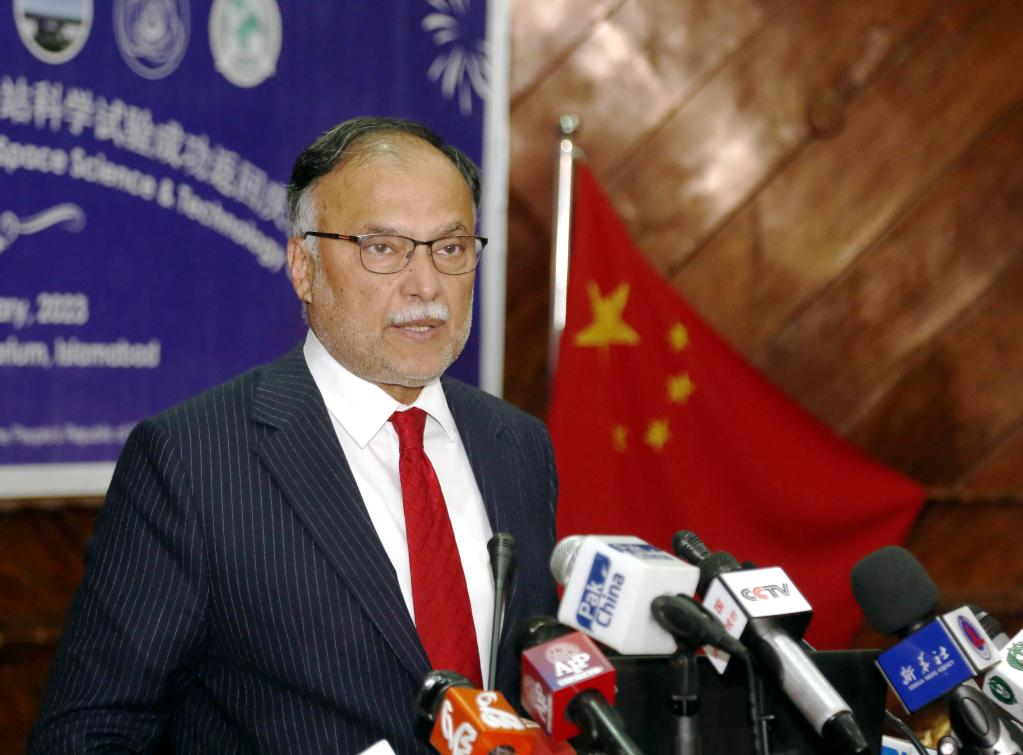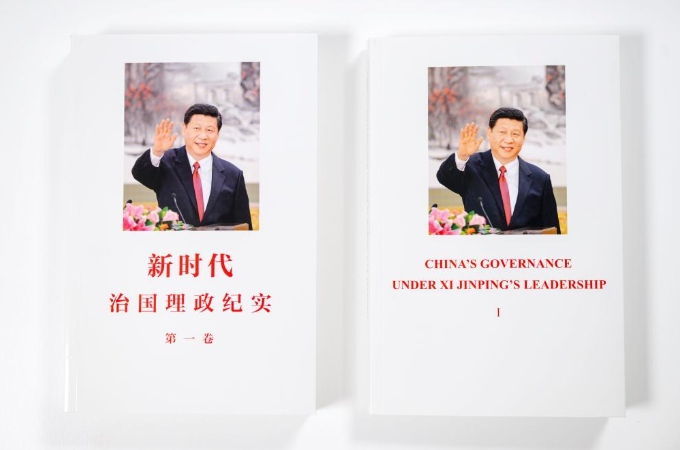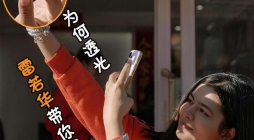Pak-China seed cooperation important for Pakistan's food security
Source: Xinhua | 2023-02-09 | Editor:Ines

Atia-tul-Wahab (C), a professor at the International Center for Chemical and Biological Sciences, University of Karachi, receives returned Pakistani seeds from Chinese space station during the event "Celebration of the Return of Pakistani Seeds from Chinese Space Station" in Islamabad, capital of Pakistan on Feb. 8, 2023.
The new phase of seed cooperation between Pakistan and China is critically important for Pakistan to meet the food security challenge in the future, a Pakistani minister said.
China helped Pakistan take seven herbal seeds to the Chinese space station for space breeding by exposing them to cosmic radiation and microgravity to mutate their genes, and in this regard an event was held here to mark the successful return of the seeds. (Xinhua/Ahmad Kamal)
The new phase of seed cooperation between Pakistan and China is critically important for Pakistan to meet the food security challenge in the future, a Pakistani minister said.
China helped Pakistan take seven herbal seeds to the Chinese space station for space breeding by exposing them to cosmic radiation and microgravity to mutate their genes, and in this regard an event was held here to mark the successful return of the seeds.
On the sidelines of "Celebration of the Return of Pakistani Seeds from Chinese Space Station," Pakistani Minister for Planning, Development, and Special Initiatives Ahsan Iqbal said that the South Asian country is in dire need of seed cooperation to meet climate change challenges.
"Pakistan is very vulnerable to climate change, due to which we need smart agriculture, and for that we need new varieties of seeds, which are resistant to the new weather challenges, and which are more suitable to the climate change risks," Iqbal told Xinhua.
Liu Xinming, a chief scientist from China's Ningbo University, said the Chinese Ministry of Foreign Affairs transferred the seeds to China Manned Space Agency on April 12 last year.
The seeds were launched into outer space carried by Shenzhou-14 spaceship on June 5 2022, and after six months of flying, returned to the earth with the Shenzhou-14 astronaut crew on Dec. 4 last year, Liu added.
Atia-tul-Wahab, a professor at the International Center for Chemical and Biological Sciences, University of Karachi, said her institute proposed the government to send the herbs' seeds to space.
"We sent some grains to the space and kept the same quantity in our laboratory. Now upon their return, we will closely examine them and do their tests at our laboratory. Then both seed varieties will be sowed separately to see the end results through comparison," she told Xinhua.
Wahab said it is the first time that Pakistan sent seeds to space and it is a landmark achievement for the country, adding that her lab is eyeing sending food staples including rice, wheat and pulses to space for further research.
The professor told Xinhua that the herbs sent to space are used in traditional Pakistani medicine, and that it's hoped that the space breeding will enable scientists at her institute to produce medicine for incurable diseases.
Pang Chunxue, charge d'affaires of the Chinese Embassy in Pakistan, said the experiment will surely be recorded in the history of China-Pakistan friendship as a landmark of the science and technology cooperation of both countries.
China's international science and technology cooperation is an open, shared and inclusive cooperation that insists on conducting cooperation in space exploration on the basis of equality, mutual benefit, peaceful use and inclusive development, she said.
"All countries are welcome to actively participate in space exploration with China," the Chinese diplomat added.

Pakistani Minister for Planning, Development, and Special Initiatives Ahsan Iqbal speaks during the event "Celebration of the Return of Pakistani Seeds from Chinese Space Station" in Islamabad, capital of Pakistan on Feb. 8, 2023.
The new phase of seed cooperation between Pakistan and China is critically important for Pakistan to meet the food security challenge in the future, a Pakistani minister said.
China helped Pakistan take seven herbal seeds to the Chinese space station for space breeding by exposing them to cosmic radiation and microgravity to mutate their genes, and in this regard an event was held here to mark the successful return of the seeds.
TO GO WITH "Roundup: Pak-China seed cooperation important for Pakistan's food security" (Xinhua/Ahmad Kamal)
You May Like
-
Pakistani president calls for road safety strategies to redu...
Pakistani President Arif Alvi said Wednesday that there is a need to properly implement road safety strategies and policies to reduce traffic-related mortalitie...
InKunming 2023-02-09 -
Experts say Pakistan-China collaboration on education, cultu...
The collaboration of Pakistan and China on education and cultural cooperation and exchanges witnessed an upward trajectory with each passing day, Pakistani and ...
InKunming 2022-12-23 -
In pics: Bridal Couture Week in Lahore, Pakistan
Models present creations during the Bridal Couture Week in Lahore, Pakistan on Dec. 16, 2022.
InKunming 2022-12-23 -
Pakistani president appoints Asim Munir as new army chief
Pakistani President Arif Alvi on Thursday appointed Lieutenant General Asim Munir as the country's new chief of army staff, the media wing of the President's Se...
InKunming 2022-11-25 -
11th Int'l Defense Exhibition and Seminar held in Pakistan
11th Int'l Defense Exhibition and Seminar held in Pakistan
InKunming 2022-11-18 -
China welcomes FATF's removal of Pakistan from its grey list
China welcomes the decision of the Financial Action Task Force (FATF) to remove Pakistan from its grey list, a foreign ministry spokesperson said on Monday.
InKunming 2022-10-27 -
Pakistani PM to visit China
At the invitation of Chinese Premier Li Keqiang, Pakistani Prime Minister Shahbaz Sharif will pay an official visit to China from Nov. 1, Foreign Ministry spoke...
InKunming 2022-10-27 -
Roundup: Chinese firm's smart logistics centers to revolutio...
Pakistan has put its first-ever smart distribution center (SDC) into operations in the country's southern port city of Karachi, with experts and officials hai...
InKunming 2022-10-20 -
Pakistan-China relations getting closer: official
Pakistan's Minister of State for Foreign Affairs Hina Rabbani Khar said on Tuesday that the country's relations with China have been getting closer.
InKunming 2022-10-12 -
Pakistani rupee continues to get strength against USD
The Pakistani rupee continues to get significant strength against the U.S. dollar as the greenback was traded at 219.92 rupees in the interbank on Friday, accor...
InKunming 2022-10-08







